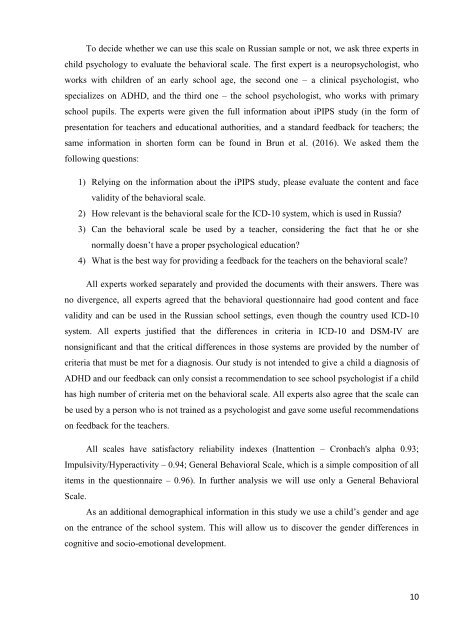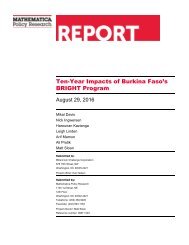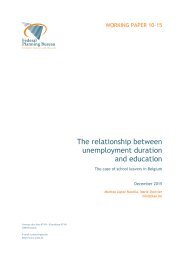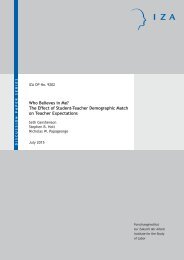OF RUSSIAN SCHOOL SIMILARITIES AND DIFFERENCES
n?u=RePEc:hig:wpaper:66psy2016&r=edu
n?u=RePEc:hig:wpaper:66psy2016&r=edu
Create successful ePaper yourself
Turn your PDF publications into a flip-book with our unique Google optimized e-Paper software.
To decide whether we can use this scale on Russian sample or not, we ask three experts in<br />
child psychology to evaluate the behavioral scale. The first expert is a neuropsychologist, who<br />
works with children of an early school age, the second one – a clinical psychologist, who<br />
specializes on ADHD, and the third one – the school psychologist, who works with primary<br />
school pupils. The experts were given the full information about iPIPS study (in the form of<br />
presentation for teachers and educational authorities, and a standard feedback for teachers; the<br />
same information in shorten form can be found in Brun et al. (2016). We asked them the<br />
following questions:<br />
1) Relying on the information about the iPIPS study, please evaluate the content and face<br />
validity of the behavioral scale.<br />
2) How relevant is the behavioral scale for the ICD-10 system, which is used in Russia?<br />
3) Can the behavioral scale be used by a teacher, considering the fact that he or she<br />
normally doesn’t have a proper psychological education?<br />
4) What is the best way for providing a feedback for the teachers on the behavioral scale?<br />
All experts worked separately and provided the documents with their answers. There was<br />
no divergence, all experts agreed that the behavioral questionnaire had good content and face<br />
validity and can be used in the Russian school settings, even though the country used ICD-10<br />
system. All experts justified that the differences in criteria in ICD-10 and DSM-IV are<br />
nonsignificant and that the critical differences in those systems are provided by the number of<br />
criteria that must be met for a diagnosis. Our study is not intended to give a child a diagnosis of<br />
ADHD and our feedback can only consist a recommendation to see school psychologist if a child<br />
has high number of criteria met on the behavioral scale. All experts also agree that the scale can<br />
be used by a person who is not trained as a psychologist and gave some useful recommendations<br />
on feedback for the teachers.<br />
All scales have satisfactory reliability indexes (Inattention – Cronbach's alpha 0.93;<br />
Impulsivity/Hyperactivity – 0.94; General Behavioral Scale, which is a simple composition of all<br />
items in the questionnaire – 0.96). In further analysis we will use only a General Behavioral<br />
Scale.<br />
As an additional demographical information in this study we use a child’s gender and age<br />
on the entrance of the school system. This will allow us to discover the gender differences in<br />
cognitive and socio-emotional development.<br />
10







